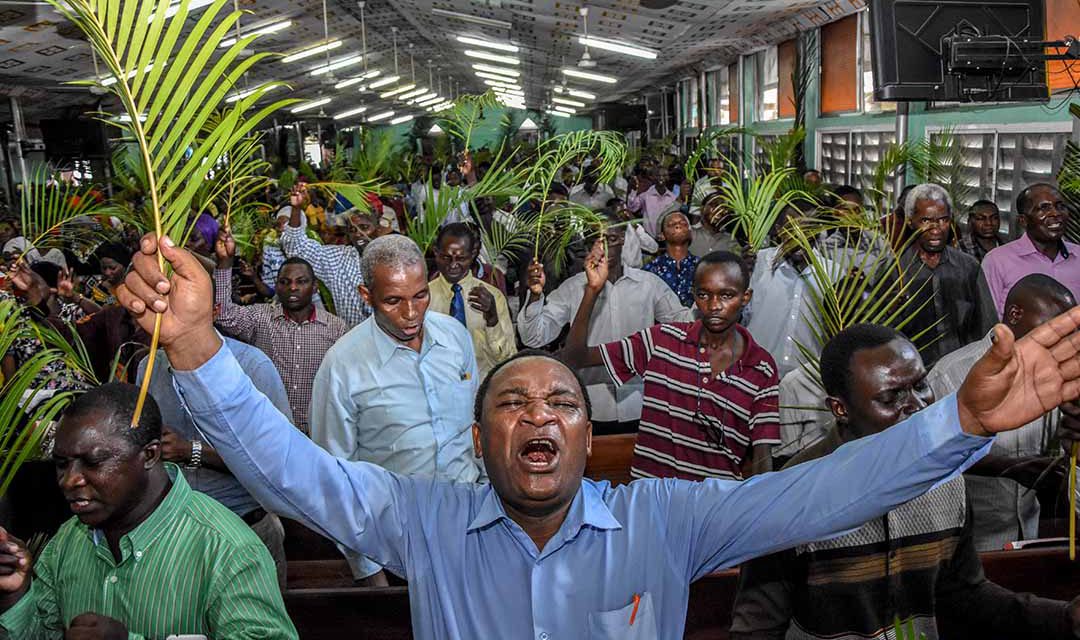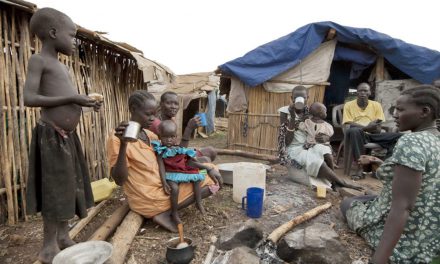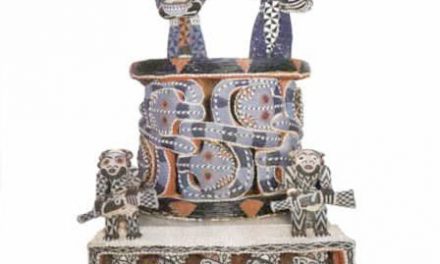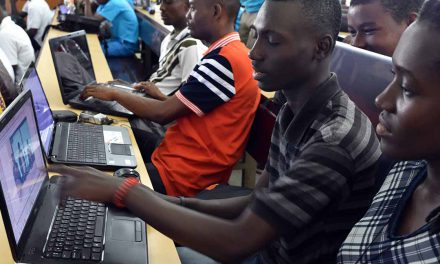COVID-19: an African overview
African countries have reacted in different ways to the pandemic, from outright denial to some of the most stringent lockdown rules in the world
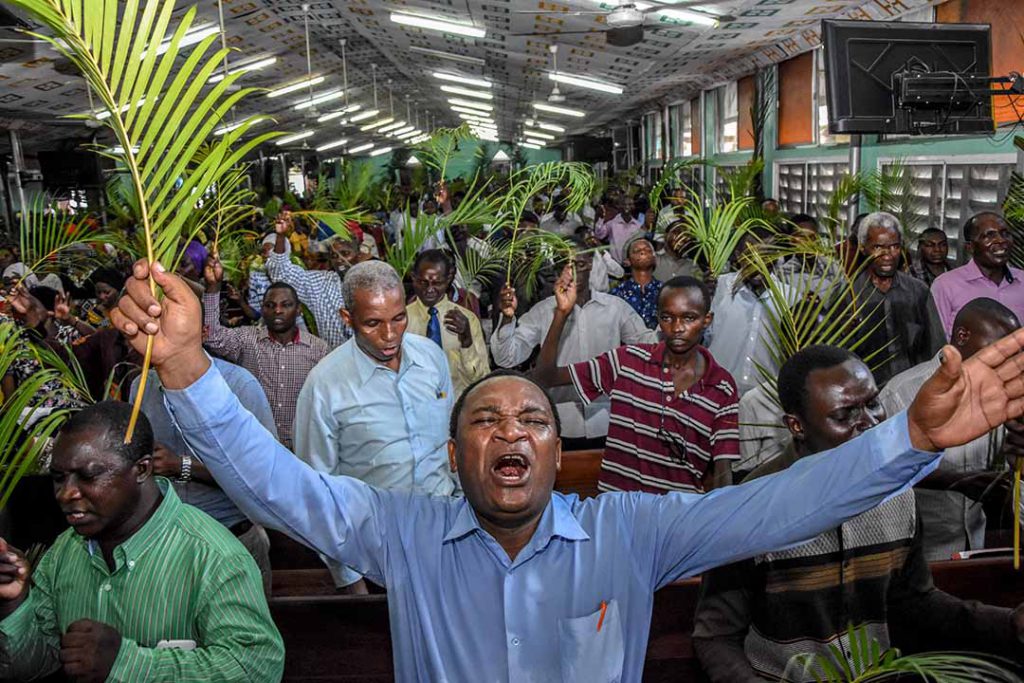
Believers pray without taking social distancing during a Palm Sunday mass at the Full Gospel Bible Fellowship Church in Dar es Salaam, Tanzania, on April 5, 2020. (Photo by Ericky BONIPHACE / AFP)
When retired star footballer Musa Otieno went public on 30 June 2020 after contracting COVID-19, Kenyans sat up and listened. It was a sobering moment for the country, especially among the naysayers who still believed that the disease was nothing but a scaremongering tactic by the government. Otieno was a long-serving captain of the national team apart from playing professional football for the Cape Town based Santos FC, which won the South African League when he was there in the 2001/02 season. Before news of Otieno’s illness had sunk in, the country was numbed by the death from COVID-19 of popular TV and stage actor Charles Bukeko, who gained world fame when he appeared in an advert for Coca Cola, which aired globally just before the 2010 World Cup.
Finally, celebrated TV news anchor Jeff Koinange also went public on 20 July 2020 after testing positive. The former CNN journalist advised Kenyans to take the disease seriously. These three cases proved to be a godsend for a government that was trying hard to contain the spread of the virus amidst widespread public scepticism. Ever since the first case was reported in Kenya in early March, the numbers have kept rising, a situation that prompted President Uhuru Kenyatta to announce a nationwide curfew as well as lockdown of the capital Nairobi, the port city of Mombasa and Mandera, bordering Somalia and Ethiopia.
The first of the raft of measures were announced by President Kenyatta on 26 March 2020 with a 7 pm to 5 am curfew exempting those providing essential services, and a ban on all gatherings, including places of worship and sporting activities. Weddings and funerals were allowed but with the caveat that only 15 people attend while adhering to all the safety protocols laid out by the Ministry of Health. President Kenyatta, at the time of writing, has been reviewing these measures monthly and in his latest address on 28 August 2020, he extended the curfew and ban on bars and entertainment operations for a further 30 days.
Churches and mosques have since been allowed to open but with a strict one and a half hours service with attendants limited to 100 people maximum. The first partial lifting of the tough conditions that allowed the sale of alcohol in restaurants, but with the caveat that alcohol could only be sold if patrons also ordered food, was announced by the head of state in his June address. But nothing can separate Kenyans from their drink, it seems, and soon afterwards Health Minister Mutahi Kagwe lamented that people were breaking the rule with impunity. According to the former newspaper executive, wily Kenyans were going to restaurants, ordering a sausage or two, then engaging in binge drinking.
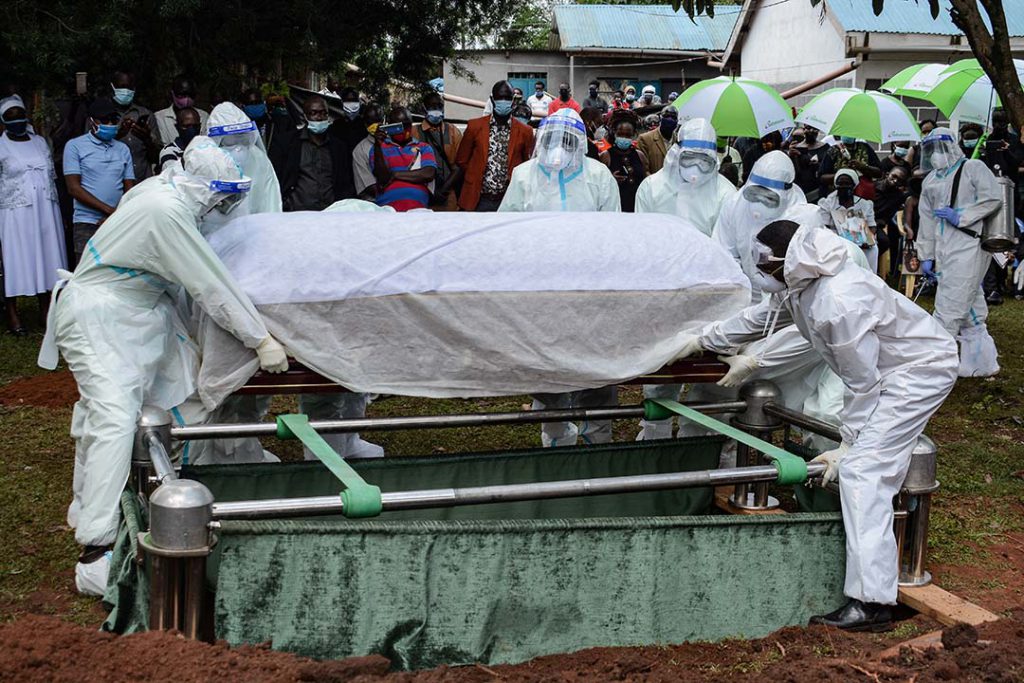
Members of Bungoma County Isolation Team in personal protection equipment (PPE) carry the coffin of Dr. Doreen Lugaliki, 39, the first Kenyan doctor who died of the COVID-19 coronavirus in Nairobi, to bury during her funeral in Ndalu, western Kenya, on July 13, 2020. (Photo by Brian ONGORO / AFP)
Restaurant goers referred to this as “Mutahi Kagwe Special”, (“special” here being borrowed from eateries parlance where people order special meals), the minister said. And the beer ban busting was not entirely limited to the common folk. Towards the end of July, the Senator for Nairobi Johnson Sakaja, a close ally of President Kenyatta, was caught by policemen as he hosted a party at a high-end hotel long after the permitted hours of 5 to 7 pm. His case was all the more interesting because he was the chairman of the Senate ad hoc committee on COVID-19. A contrite Sakaja addressed a press conference the next day where he not only apologised but resigned from his committee position.
He was fined Kshs 15,000 (about $150) by a Nairobi court, a punishment Kenyans dismissed as a slap on the wrist, considering that senators earn as much as Kshs 1 million per month. Like many countries in the world, Kenya is struggling to combat the disease that has all but brought the country to a standstill. In late July, the Ministry of Health ordered 100,000 body bags to dispose of the corpses of coronavirus victims, while most of the county governments have announced they are purchasing land to be used as public cemeteries to bury the COVID-19 dead. But by the end of August, there was not a single county that had started burials at the newly acquired cemeteries.
Meanwhile, schools remain closed, with the government saying some of the institutions will be turned into temporary hospitals if the situation deteriorates. As at July 28, Kenya had recorded 33,016 cases, 564 deaths and 19,296 recoveries. It was against this background that President Kenyatta in his address to the nation on July 3 asked for more caution from the public in fighting the pandemic. The head of state admitted that he was walking a tight rope, trying to balance containing the scourge while ensuring that the economy did not go into meltdown. Kenyatta’s dilemma mirrors that of his fellow African heads of state as they try to deal with a new enemy that respects no borders.
The continent’s leaders have had mixed reactions to the virus. Whereas President Kenyatta and his South African counterpart have opted to ban, ease, then re-ban the sale and consumption of alcohol, on the extreme side are the former Burundi head of state, Pierre Nkurunzisa, who famously declared that God himself had assured him that COVID-19 would not harm Burundians. Then he got ill and died on 8 June 2020. Although the government announced he had died from a heart attack, local news outlets claimed that he had succumbed to COVID-19. As Nkurunzisa lay dying in a rural hospital in his country, his wife, First Lady Denise Bucuma Nkurunzisa, was airlifted to Nairobi where she was treated and discharged in time for her husband’s burial.
Reports indicated that she was being treated for COVID-19, although the hospital, citing patient confidentiality, never responded to the media reports. Diplomatic sources were also quoted in sections of the Kenyan press, saying that President Kenyatta was under pressure to allow some top South Sudanese generals to get treated in Nairobi after they tested positive for COVID-19. South Sudan Vice President Riek Machar wrote to Kenya on 7 April, 2020 seeking to have a high-level person be allowed treatment in Kenya. However, the request appears to have been turned down.
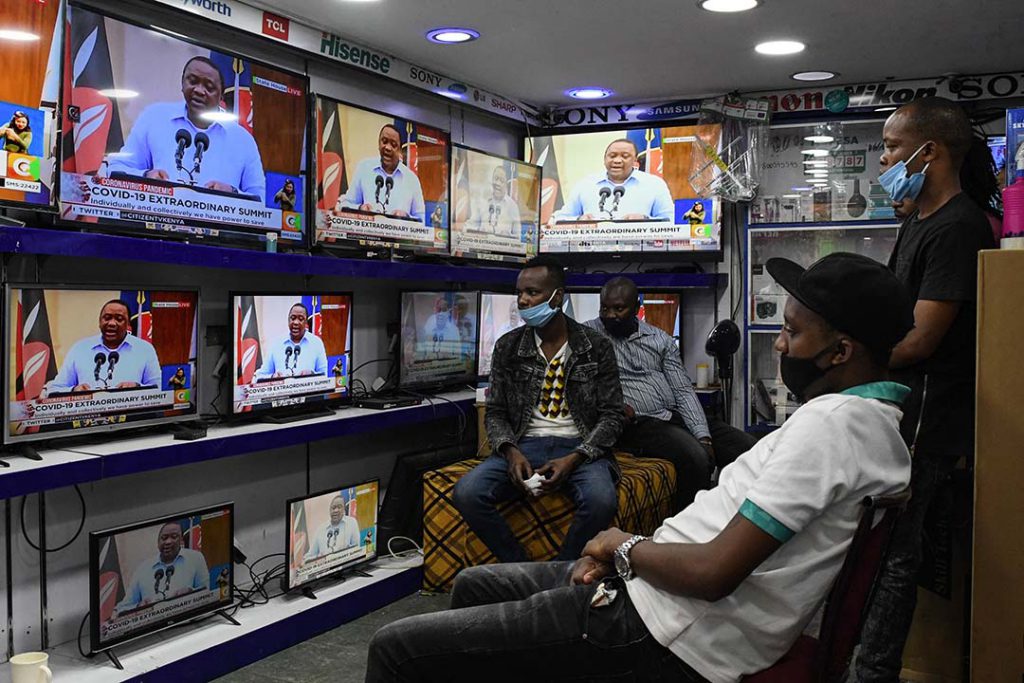
People in an electronics shop watch President Uhuru Kenyatta addressing the nation on the coronavirus on television in Nairobi, Kenya, July 2020 Photo: Simon Maina/AFP
In Tanzania, President John Magufuli has flatly rejected any suggestions that his country could be in danger, and suggested Tanzanians go about their lives as usual, with no masks, no tests and no infection or deaths reported. Magufuli, who holds a doctorate degree in chemistry, has run into diplomatic turbulence with Kenya over his standpoint. In his national address on 27 July 2020, and without directly naming Magufuli, President Kenyatta spoke of “others” who were stifling information about the virus. A day after Kenyatta’s address, a plane carrying a Kenyan delegation to the burial of former Tanzanian President Benjamin Mkapa was turned back to Nairobi immediately after entering Tanzanian airspace.
Authorities on both sides blamed mechanical problems with the aircraft and bad weather, although the plane later landed safely in Nairobi and other planes landed in Tanzania on that day. In a tweet that was retweeted many times, the digital editor at The Star newspaper, Oliver Mathenge, said, “President Magufuli appears to have hit back after his Kenyan counterpart, Uhuru Kenyatta, insinuated that Tanzania was not honest about its COVID-19 situation. A Kenyan delegation to attend the burial of former Tanzania President Mkapa was not allowed to land today.” In Madagascar, tensions were reported after health minister Ahmad Ahmad wrote to the international community on 22 July 2020 to help the country deal with COVID-19.
This was in stark contrast to the position taken by President Andry Rajoelina, who has been vocal in his promotion of a herbal concoction which he has stated can prevent and cure the disease. The two divergent positions by the president and his health minister led to squabbles that came to a head on 20 August 2020, when the head of state fired the minister in a cabinet reshuffle. Initially, African countries were sitting pretty, smug in the false belief that COVID-19 was generally affecting people of Caucasian origin. As European countries like Spain and Italy reported infections and deaths in large numbers, African borders remained relatively safe. The trend was bucked when the disease reached the United States with reports that the black population there was the hardest hit.
Nonetheless, and probably by some divine providence, the wiping out of Africans as earlier predicted has not happened. With run-down health systems and other infrastructure, most experts were agreed that Africa would be hardest hit. However, with 1,196,298 cases, 28,021 deaths and 16,385,382 recoveries at the time of writing in the last week of August, Africa is not that badly off . But there is no time for African leaders and its health experts to rest on their laurels. One silver lining for Africa is that unlike other diseases where the ruling elite and their henchmen seek medical treatment abroad, with COVID-19 there is no such luxury, and it behoves the leaders to upgrade health facilities in their respective countries.
Tom Mboya is a Kenyan journalist working with an INGO in Nairobi. He was the 2009 Joel Belz International Media Fellow and the 2017 Coaching and Leadership Fellow, which is a programme offered by The Media Project and the Poynter Institute. His works have been published around the world.

